#environmental issues for climate change
Explore tagged Tumblr posts
Text

Environmental issues for climate change refer to the significant challenges arising from global warming and shifts in weather patterns caused by human activities. These include rising greenhouse gas emissions, deforestation, melting glaciers, sea level rise, extreme weather events, and loss of biodiversity. Addressing these issues requires global efforts in reducing carbon footprints, promoting renewable energy, and adopting sustainable practices to mitigate the impact on ecosystems and ensure a healthier planet for future generations.
#environmental issues for climate change#climate education for sustainable living#sustainable diets climate impact#climate-friendly diet tips
0 notes
Text
Hey, happy Earth Day! Who wants to talk about climate change?
Yeah, okay, fair, I kinda figured the answer to that would be "ugh do we have to?" What if I told you I have good news though? Good news with caveats, but still good news.
What if I told you that since the Paris Agreement in 2015, we've avoided a whole degree celsius of global warming by 2100, or maybe more?

Current projections are 2.7C, which is way better than the 3-5C (with a median of 3.7C) we were expecting in 2015. It's not where we want to be - 1.5C - but it is big, noticeable progress!
And it's not like we either hit 1.5C and avoid all the big scary consequences or fail to hit 1.5C and get all of them - every tenth of a degree of warming we avoid is going to prevent more severe problems like extreme weather, sea level rise, etc.
This means that climate change mitigation efforts are having a noticeable impact! This means a dramatically better, safer future - and if we keep pushing, we could lower the amount of global warming we end up with even further. This is huge progress, and we need to celebrate it, even though the fight isn't over.
It's working. Keep going.
#hylian rambles#climate change#climate crisis#environmental issues#global warming#hope#hope for the future#hope for the planet#earth day
22K notes
·
View notes
Text
youtube
Watch the 2024 American Climate Leadership Awards for High School Students now: https://youtu.be/5C-bb9PoRLc
The recording is now available on ecoAmerica's YouTube channel for viewers to be inspired by student climate leaders! Join Aishah-Nyeta Brown & Jerome Foster II and be inspired by student climate leaders as we recognize the High School Student finalists. Watch now to find out which student received the $25,000 grand prize and top recognition!
#ACLA24#ACLA24HighSchoolStudents#youtube#youtube video#climate leaders#climate solutions#climate action#climate and environment#climate#climate change#climate and health#climate blog#climate justice#climate news#weather and climate#environmental news#environment#environmental awareness#environment and health#environmental#environmental issues#environmental education#environmental justice#environmental protection#environmental health#high school students#high school#youth#youth of america#school
23K notes
·
View notes
Text
#good news#environmentalism#science#indigenous peoples#indigenous food systems#food sovereignty#climate crisis#global climate change#climate news#climate action#indigenous issues#indigenous sovereignty#Siċaŋġu Nation#lakota#native american#climate change#usa#nature#environment#bison#mushrooms#foraging#foragecore#foraged food
148 notes
·
View notes
Text
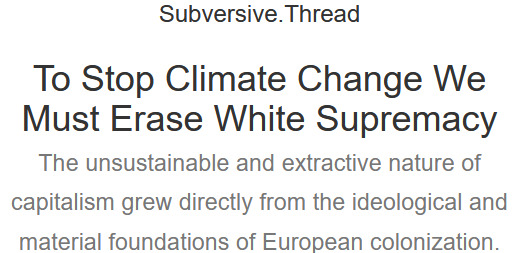

The way most people talk about climate change we are led to believe we all have an equal part in creating the capitalist nightmare we live in, but that’s a lie. The unsustainable and extractive nature of capitalism grew directly from the ideological and material foundations of European colonization. We cannot hold the entire human species responsible for that. It’s victim blaming.
The vast majority of waste is produced by the same people and institutions who hold power. Fighting for our planet, the health of our land, our food, our homes, our communities, is where the fight against capitalism and white supremacy collide. Any fight for environmental justice must also be a fight for racial justice because BI&POC are the ones who disproportionately bear the weight of climate change.
White Settler Colonialism Is Destroying the Planet, Not Poor BI&POC
Don’t believe the Malthusian and eco-fascist myth that there are too many people on the planet to care for. This is a lie peddled by capitalists, eugenicists, and people who advocate for genocide. We know that every landbase has its limit for how much life it can support (indigenous peoples have been saying this for hundreds of years), but “overpopulation” rhetoric is overwhelmingly used as a means to enforce colonial hierarchies where wealthy white people can maintain lives of access and privilege while poor BI&POC barely survive.
Instead of telling poor BI&POC to have less children or to stop wanting better lives, we should build a movement to fight climate change which centers racial justice, abolishes capitalism, and forces wealthy, predominately white populations to stop hoarding resources.
Here are some Earth Day facts for tomorrow so you don’t fall for the lies:
Just 100 companies are responsible for 71% of global emissions. (Source: the Guardian)
Black communities are exposed to 56% more pollution than is caused by their consumption. For Latinx communities, it is 63%. (Source: American Journal of Public Health)
97% of waste produced in the United States is corporate waste. 80% of businesses are owned & operated by white people. (Source: “The Story of Stuff” & US News)
Indigenous peoples make up less than 5% of the planet’s human population, yet they are protecting 80% of its biodiversity. (Source: National Geographic)
The world’s richest 10% produce half of carbon emissions while the poorest half contribute only 10%. (Source: Oxfam)
The world’s wealthiest 16% use 80% of the planet’s natural resources. (Source: CNN)
We are not all equally “responsible.” White settler colonialism and capitalism are destroying the planet, not poor BI&POC.
#climate change#climate crisis#white supremism#community building#practical anarchy#practical anarchism#anarchist society#practical#revolution#anarchism#daily posts#communism#anti capitalist#anti capitalism#late stage capitalism#organization#grassroots#grass roots#anarchists#libraries#leftism#social issues#economy#economics#climate#ecology#anarchy works#environmentalism#environment#solarpunk
176 notes
·
View notes
Text
‼️‼️URANIUM IS BEING ILLEGALLY TRANSPORTED ACROSS NATIVE LAND‼️‼️
#native american#American#america#us politics#police#politics#environment#climate change#nuclear war#nuclear weapons#usa#usa news#united states#american politics#environmentalism#environmental issues#world news#news#american news#north America#human rights#protests#navajo#navajo nation#uranium#go green#climate crisis#climate action#climate justice#climate solutions
79 notes
·
View notes
Text
Nausicaä of the Valley of the Wind: Why This is My Favourite Ghibli Movie
CW: Major high-school English teacher vibes ahead. Proceed at your own risk.
Nausicaä of the valley of wind is a story of the titular character Nausicaä and her being a bridge between the world of humans and nature to bring peace, thus fulfilling an ancient prophecy.
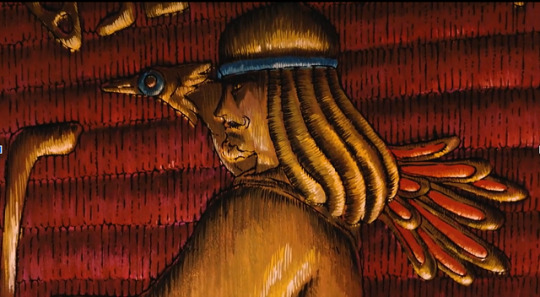
Nausicaa is the princess of the Valley of the Wind. The film begins with her walking and exploring the Sea of Decay, an area with toxic air, plants and fungal spores. She collects some spores and finds the hard molten shell of an Ohmu (gigantic blue-blooded trilobite-looking creatures), which her people use to make weapons and tools. As the name suggests, the Valley of the Wind is a civilisation that depends on and bases their culture around wind, which one can see through an abundance of windmills and gliders, including the one that Nausicaä rides. They are shown to be peaceful people who do not interfere with the politics of the warring human kingdoms or disturb nature. Nausicaä in particular is shown to have a special gift with animals—from calming Ohmus to having a pet fox-squirrel. As the existence of the kingdom depends on the sea wind that shields them from the effects of the sea of decay, there is a general reverence towards nature and its other members such as the Ohmus, that are often referred to with honorifics.
This was an element I liked: the symbolism goes deep in this film; for example, with the nature of wind—it being the very breath necessary for life is contrasted with its other face, through toxic spores in the sea of decay capable of killing anyone who inhales it.
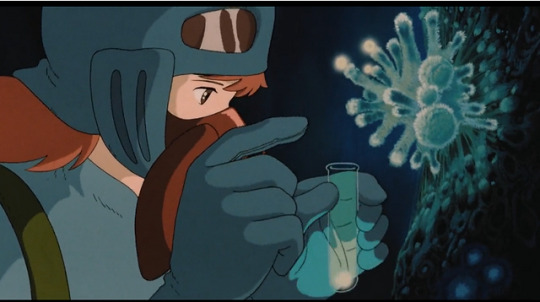
It is revealed that humans had built The Giant Men, weapons so dangerous—not unlike our atomic bombs as shown through the characteristic mushroom cloud—that the destruction caused by the war had unleashed the fury of the Ohmus, an otherwise gentle species. They wiped out entire civilisations and where they died, the Sea of Decay grew on their decomposing corpses, showing how all life is interconnected and that even in death the rage of the Ohmus, and through them the rage of nature, wouldn't subside. It is then that the viewers find out that this is not some far-off planet, but a post-apocalyptic future on earth.
New species of plants and fungi made the Sea of Decay their habitat—nature and life always find a way. It is implied that the humans lost the war referred to as the Seven days of Fire, but the truth is that it is not a war that can ever be won. Even if you win the war against nature you lose. As the story progresses, we see that the plants and fungi that Nausicaä collected from the Sea of Decay are actually trying to purify the soil and water—nature holds no grudges but only seeks balance.

The seventh of the Giant Men, a sentient atomic bomb if you will, apparently hid underground for a thousand years until the kingdom of Pejite found it for use against their enemy, the Tolmekians. They both remain oblivious to the sheer destruction that can be caused by this Giant Man and they don't care either. Despite the balance between humans and nature being a delicate one, instead of trying to rebuild together, they justify to themselves that the war is necessary for self-preservation and to put humans back on top of the food chain.
In their hubris, the Tolmekians and their princess Kushana believe that with the help of their superweapon they can destroy the Sea of Decay despite knowing that it will trigger the wrath of the Ohmus. The Giant Man however is not complete and hence, though the devastation is great, the final giant man dies and all that remains to be done is to calm the wrath of the Ohmus.
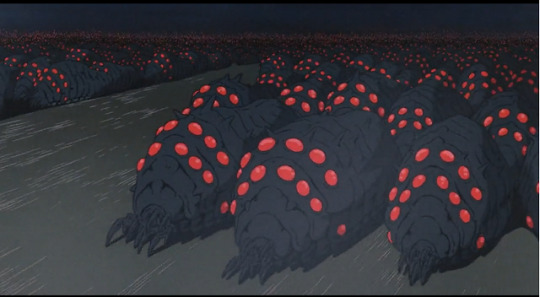
Nausicaä saves an Ohmu child who was injured by Tolmekian soldiers to lure the Ohmus into a war. She saves the baby Ohmu and sacrifices her own life to calm the sea of maddened Ohmus. The now-calm Ohmu then revive Nausicaä, symbolising the mystical healing power of nature and its ability to support and create life.
Nausicaä is an excellent protagonist, and how the trope of the chosen one is utilised is beautiful and full of symbolism. Right from the get-go, we see her being inquisitive and brave. She is willing to defend her people but not through violence. And it is made abundantly clear that her avoidance of violence is not due to any lack of strength; when she strikes down the soldiers who killed her father, rather than feeling any sense of pride (as one might expect from a character not used to strength), it sickens her. She shows understanding even towards Kushana, whose men took over her kingdom. She sincerely loves and respects animals and plants.
There was a prophecy among the people of the valley of wind that a person clad in blue over golden fields will save their kingdom and bring peace. And towards the end of the film, Nausicaä's clothes becoming blue with the blood of the baby Ohmu she saved and the golden fields being the tendrils of the Ohmus healing her is poetic to say the least.
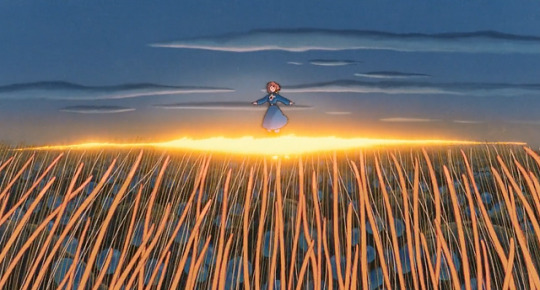
In addition to a good female protagonist, we also get a powerful female antagonist in Kushana, who starts out as a one-note expansionist ruler, but it is revealed that she lost her limbs and got severely maimed by the sea of decay, motivating her to destroy it once and for all. Proud and arrogant, sure, but she has a motive beyond just wanting power and possesses some form of a moral code. In another story she could be the protagonist bravely defending humanity against the evil, alien-esque trilobites and spores.
It was a unique and meaningful choice on Miyazaki's part to symbolise nature through the Ohmus—alien-looking giant insects—instead of something cute and fluffy. Oftentimes humans care more about the conservation of animals that they find cute (pandas over, say, Panamanian golden frogs), but an animal doesn't have to appeal to human aesthetics to be worth conserving.
Absolutely not to be missed is the breathtaking soundtrack by Hisaishi. There are symphonies, techno music, sitar-like instruments and a child's humming, all elevating every scene to give a moving experience.
Ultimately it is an ambitious story that aims to deal with themes of coexisting with nature, the futility and dangers of war, and of how innocent children who should live carefree lives are dragged into it and made heroes. This film is often categorised as falling into the genre of Solarpunk: a literary and artistic movement that centres around building a sustainable future interconnected with nature and community. Although this film does depict violence and wars, it ultimately shows a peaceful future is possible.
Truly a masterpiece. 9/10.
#analysis#culture#short essays#media#anime#fictional characters#film#ghiblicore#studio ghibli#musings#movies#solarpunk#climate change#nuclear#environmental issues#environment#miyazaki#feminism#review#character analysis#nausicaa#animanga#animals
236 notes
·
View notes
Text
I want people to talk about the climate crisis like they talk about Palestine. Every single post about something mildly bad happening I want comments saying “yeah well we’re also facing an ecological collapse so”, every time anyone posts about how much they have (the 16 different iPhones people) I want people in the comments calling them to donate to climate action charities and to green energy.
When I say “talk about the climate crisis like you talk about Palestine”, I mean talk about it like it’s a thing that will effect all of us. Each and every single one of us. Because it is. Talk about it like it is.
#DO NOT TAG AS P/ALESTINE OR THE LIKE#IM NOT DRAWIN ATTENTION AWAY FROM THEIR ISSUES IM SPEAKING OF THE GLOBAL COLLAPSE#:)#tumblr#hellsite#please#hellsite (derogatory)#enviromental#enviro#enviroment#environmentalism#environment#climate#climate crisis#climate change#climate action
45 notes
·
View notes
Text
Indigenous people are the best and most crucial line of defence that the Amazon has. But they face numerous threats to their lives rights and safety from logging and mining companies. Donate to help them protect themselves and each other.
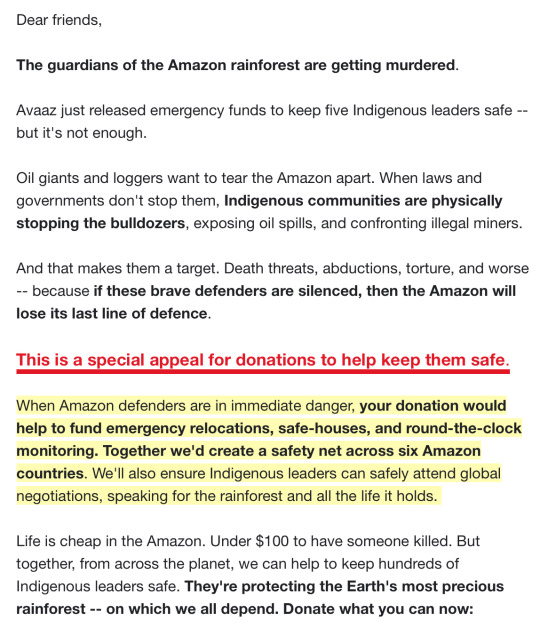
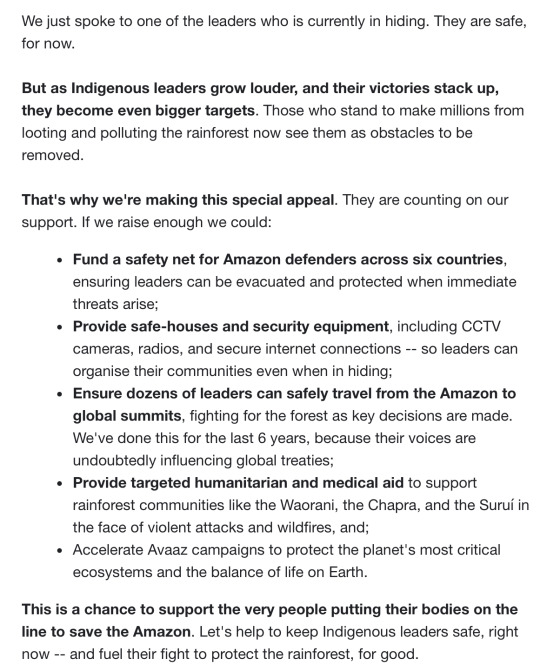
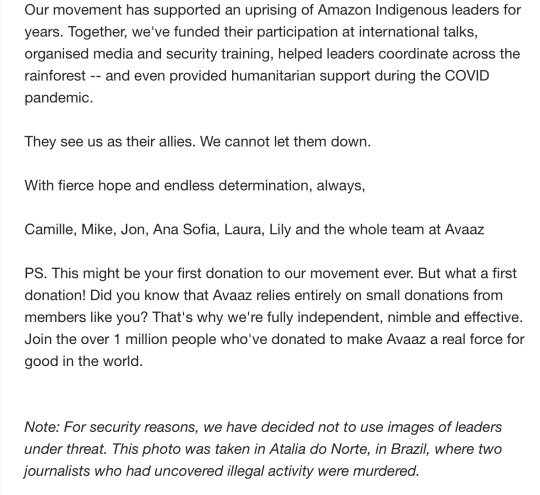
#amazon rainforest#indigenous lives matter#indigenous rights#indigenous sovereignty#land back#environmental issues#environmentalism#environmental activism#environnement#environment#climate news#climate crisis#climate change#climate#climate action#climate justice#climate catastrophe
17 notes
·
View notes
Text
#indigenous#native american#ndn#good news#nature#climate change#science#environmentalism#environment#fire#wildfire#indigenous issues#prescribed fires
58 notes
·
View notes
Text

Animal agriculture significantly impacts the climate, contributing to greenhouse gas emissions such as methane, nitrous oxide, and carbon dioxide. Livestock farming accounts for about 14.5% of global emissions, driven by enteric fermentation, deforestation for grazing land, and feed crop production. It also leads to resource-intensive practices, including high water and energy use, and generates pollution through manure and waste management.
#Impact of Animal Agriculture on Climate#environmental issues for climate change#climate education program#environment friendly diet#climate-friendly diet tips
0 notes
Text

#climate change#hurricane season#national hurricane center#hurricanes#politics#politicians#climate denial#climate science#climate action#climate crisis#climate activism#climate and environment#climate#environmental issues#activism#activist#news#world news#environment#environmentalism#environmental#environmental activism#environmental impact#environmental science#environmental justice#climate catastrophe#climate emergency#climatechange#climate disaster#climate justice
7 notes
·
View notes
Text
youtube
Watch the American Climate Leadership Awards 2024 now: https://youtu.be/bWiW4Rp8vF0?feature=shared
The American Climate Leadership Awards 2024 broadcast recording is now available on ecoAmerica's YouTube channel for viewers to be inspired by active climate leaders. Watch to find out which finalist received the $50,000 grand prize! Hosted by Vanessa Hauc and featuring Bill McKibben and Katharine Hayhoe!
#ACLA24#ACLA24Leaders#youtube#youtube video#climate leaders#climate solutions#climate action#climate and environment#climate#climate change#climate and health#climate blog#climate justice#climate news#weather and climate#environmental news#environment#environmental awareness#environment and health#environmental#environmental issues#environmental justice#environment protection#environmental health#Youtube
23K notes
·
View notes
Text
#brazil#good news#science#environmentalism#nature#environment#animals#climate change#conservation#bugs#bees#bee keeping#indigenous issues
115 notes
·
View notes
Text

A.2.4 Are anarchists in favour of “absolute” liberty?
No. Anarchists do not believe that everyone should be able to “do whatever they like,” because some actions invariably involve the denial of the liberty of others.
For example, anarchists do not support the “freedom” to rape, to exploit, or to coerce others. Neither do we tolerate authority. On the contrary, since authority is a threat to liberty, equality, and solidarity (not to mention human dignity), anarchists recognise the need to resist and overthrow it.
The exercise of authority is not freedom. No one has a “right” to rule others. As Malatesta points out, anarchism supports “freedom for everybody … with the only limit of the equal freedom for others; which does not mean … that we recognise, and wish to respect, the ‘freedom’ to exploit, to oppress, to command, which is oppression and certainly not freedom.” [Errico Malatesta: His Life and Ideas, p. 53]
In a capitalist society, resistance to all forms of hierarchical authority is the mark of a free person — be it private (the boss) or public (the state). As Henry David Thoreau pointed out in his essay on “Civil Disobedience” (1847)
“Disobedience is the true foundation of liberty. The obedient must be slaves.”
#faq#anarchy faq#revolution#anarchism#daily posts#communism#anti capitalist#anti capitalism#late stage capitalism#organization#grassroots#grass roots#anarchists#libraries#leftism#social issues#economy#economics#climate change#climate crisis#climate#ecology#anarchy works#environmentalism#environment#solarpunk#anti colonialism#mutual aid#cops#police
172 notes
·
View notes